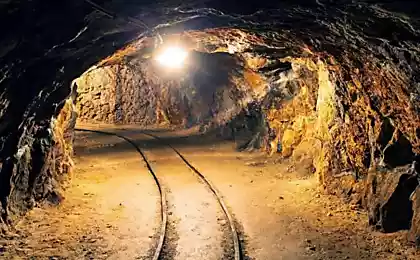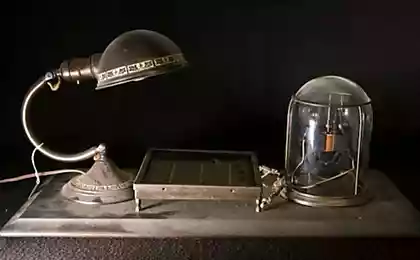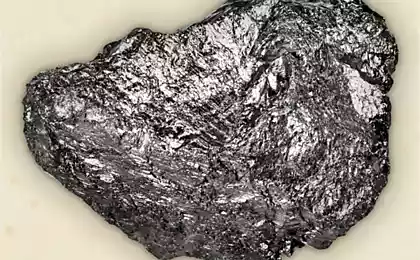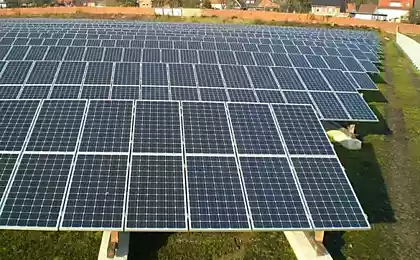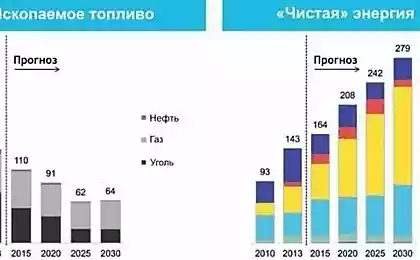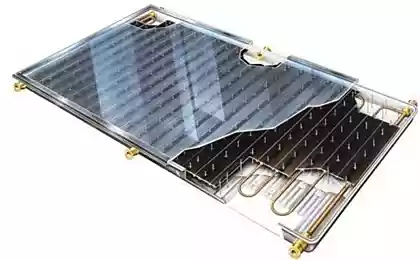525
Hydrostor — energy storage system based on compressed air
The canadian company Hydrostor has developed a new energy storage system based on compressed air, which is cheaper lithium-ion batteries, and does not use natural gas, as do other systems of this type.
The Hydrostor system, Terra, was developed by company Hydrostor, uses the excess energy generated by power plants, to compress air, which is then sent for storage in a repository underground. The heat resulting from this compression, is also accumulated.
Sixty four million nine hundred seven thousand five hundred forty seven
During peak hours of energy consumption when it is required again to receive the energy from storage, the compressed air rises to the surface and heated with heat collected earlier. The hot air spins the turbine, which generates electricity.
The principle of energy storage in the form of compressed air is nothing new, but usually these kinds of systems are used to heat air natural gas, which reduces the overall efficiency of the method leads to carbon dioxide emissions.
Representatives of the company Hydrostor argue that the effectiveness of their energy storage system is about 60%. Efficacy of compression systems with natural gas, according to the Association of storage of energy is in the range from 42 to 54%.
Seventy million seven hundred thousand five hundred eighty eight
At the moment there is only one system Hydrostor Terra, connected to the plant: it was set on Toronto island in 2015 and has a capacity of 0.7 MW. The company now also installs a system in goderich in the canadian province of Ontario, the capacity of which will amount to 1.75 MW.
The cost of the system with full installation ranges from $1000 to $2000 per kilowatt. It's cheaper than installing the lithium-ion energy storage system Powerpack 2, which was introduced by Tesla last fall. The final cost of the Powerpack 2 is $162 000, or $1620 per kilowatt. published
P. S. And remember, only by changing their consumption — together we change the world! ©
Source: //hightech.fm/2017/04/13/hydrostor
The Hydrostor system, Terra, was developed by company Hydrostor, uses the excess energy generated by power plants, to compress air, which is then sent for storage in a repository underground. The heat resulting from this compression, is also accumulated.
Sixty four million nine hundred seven thousand five hundred forty seven
During peak hours of energy consumption when it is required again to receive the energy from storage, the compressed air rises to the surface and heated with heat collected earlier. The hot air spins the turbine, which generates electricity.
The principle of energy storage in the form of compressed air is nothing new, but usually these kinds of systems are used to heat air natural gas, which reduces the overall efficiency of the method leads to carbon dioxide emissions.
Representatives of the company Hydrostor argue that the effectiveness of their energy storage system is about 60%. Efficacy of compression systems with natural gas, according to the Association of storage of energy is in the range from 42 to 54%.
Seventy million seven hundred thousand five hundred eighty eight
At the moment there is only one system Hydrostor Terra, connected to the plant: it was set on Toronto island in 2015 and has a capacity of 0.7 MW. The company now also installs a system in goderich in the canadian province of Ontario, the capacity of which will amount to 1.75 MW.
The cost of the system with full installation ranges from $1000 to $2000 per kilowatt. It's cheaper than installing the lithium-ion energy storage system Powerpack 2, which was introduced by Tesla last fall. The final cost of the Powerpack 2 is $162 000, or $1620 per kilowatt. published
P. S. And remember, only by changing their consumption — together we change the world! ©
Source: //hightech.fm/2017/04/13/hydrostor
Perfect eyebrows: 7 best natural remedies
U-Boat Worx continues to conquer the seas and oceans with Li-Ion battery
